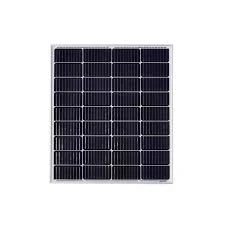solar panel efficiency at high temperatures
Solar Panel Efficiency at High Temperatures
As the global demand for renewable energy solutions continues to rise, solar energy has emerged as one of the most prominent alternatives to fossil fuels. However, a significant factor influencing the efficiency and performance of solar panels is temperature. Understanding how high temperatures affect solar panel efficiency is crucial for optimizing energy production, especially in regions with intense sunlight.
The Basics of Solar Panel Efficiency
Solar panels convert sunlight into electricity through photovoltaic (PV) cells. The efficiency of a solar panel is determined by how much sunlight it can convert into usable electrical energy. Most commercially available solar panels have an efficiency rating ranging from 15% to 22%. However, this efficiency can be influenced by various external factors, particularly temperature.
Temperature and Solar Panel Performance
Research indicates that solar panels generally perform optimally at cooler temperatures. As the temperature increases, the performance of solar cells diminishes. This phenomenon can be attributed to several key factors
1. Electronics and Band Gap Energy Solar cells are made from semiconductor materials, which have a specific band gap energy. As temperature rises, the band gap energy decreases, leading to a reduction in the voltage produced by the solar cells. Since the overall power output of a solar panel is a function of both current and voltage, a drop in voltage will ultimately lower the panel's efficiency.
2. Increased Resistor Effects Higher temperatures also result in increased resistance within the electrical components of solar panels. This increase in resistance can lead to energy losses, further impacting the overall efficiency of energy conversion.
3. Temperature Coefficient Each solar panel comes with a temperature coefficient rating, typically expressed as a percentage of efficiency loss per degree Celsius above 25°C (77°F)—the standard test condition. For many solar technologies, this coefficient typically ranges from -0.3% to -0.5%. This means that for each degree Celsius above this threshold, the efficiency of the panel can drop by a percentage point within this range.
Implications for Solar Energy Production
solar panel efficiency at high temperatures

Understanding the relationship between temperature and solar panel efficiency is particularly important for regions that experience high ambient temperatures. In places such as the southwestern United States, Australia, and parts of the Middle East, the high daytime temperatures can significantly impact energy generation. When temperatures soar, the efficiency losses may result in decreased power production, which can limit the viability of solar energy as a reliable power source.
Mitigating Efficiency Losses
Despite the adverse effects of high temperatures on solar panel efficiency, there are several strategies to mitigate these losses
1. Panel Orientation and Installation Installing solar panels at an optimal angle can reduce direct exposure to intense heat. Additionally, proper ventilation can help cool down the panels, maintaining higher efficiency levels.
2. Advanced Materials Researchers are continuously exploring new materials for solar cells that can withstand higher temperatures without significant efficiency losses. Technologies like bifacial solar panels or those utilizing perovskite materials may offer improved performance in elevated temperatures.
3. Cooling Technologies Integrating cooling technologies, such as solar concentrators or water cooling systems, can help maintain lower operating temperatures for solar panels, thus improving their efficiency in hot climates.
4. Smart Energy Systems Utilizing smart energy management systems can optimize electricity usage, ensuring that when solar output is low due to high temperatures, other sources can compensate for the deficit.
Conclusion
The efficiency of solar panels is significantly influenced by temperature, with high temperatures leading to efficiency losses that can impact energy production. As the world continues to shift towards renewable energy, understanding and addressing the challenges posed by high ambient temperatures will be essential. By implementing innovative solutions and exploring advancements in solar technology, we can enhance the efficiency of solar panels and ensure their effectiveness, even in the hottest climates. Solar energy remains a cornerstone of a sustainable future, and with careful consideration of temperature effects, its potential can be fully realized.
-
Navigating Off Grid Solar Inverter: From Use Cases to Trusted PartnersNewsAug.05,2025
-
Solar Edge String Inverter: A Wholesaler’s Guide to Inverter Technology SelectionNewsAug.05,2025
-
Microinverters: Revolutionizing Solar Energy UseNewsAug.05,2025
-
Future of Monocrystalline Solar Panel Efficiency: Latest Technological AdvancesNewsAug.05,2025
-
Solar Panels for House: A Complete Guide to Residential Solar EnergyNewsAug.05,2025
-
Panel Bifacial Performance in Snow and Low-Light ConditionsNewsAug.05,2025







